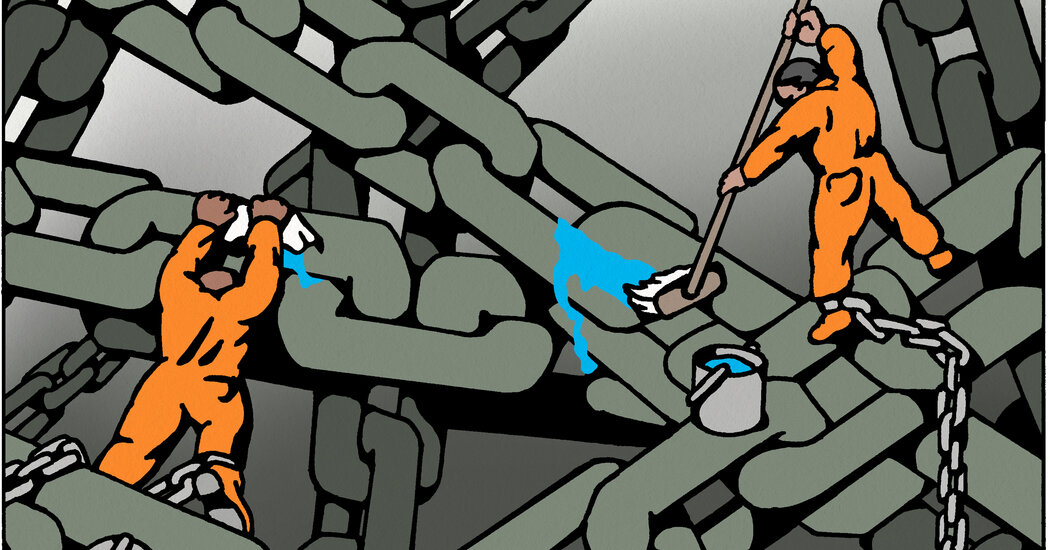
Today we celebrate Juneteenth, the day when word of the Emancipation Proclamation reached the farthest outpost in America. Many people do not realize that Emancipation did not legally end slavery in the United States, however. The 13th Amendment — the culmination of centuries of resistance by enslaved people, a lifetime of abolitionist campaigning and a bloody civil war — prohibited involuntary servitude “except as a punishment for crime whereof the party shall have been duly convicted.”
In the North, that so-called Exception Clause was interpreted as allowing the private contracting of forced prison labor, which was already underway, and in the ex-Confederacy it gave rise to the much more brutal system by which freed men and women were routinely arrested under false charges and then leased out to plantation owners and industrialists to work off their sentence. Some historians have described this convict leasing system as “worse than slavery,” because there was no incentive to avoid working those people to death.
Over time, courts accepted that all people who are incarcerated lose the protection against slavery or involuntary servitude. The legacy of that legal deference is a grim one. Today, a majority of the 1.2 million Americans locked up in state and federal prisons work under duress in jobs that cover the entire spectrum, from cellblock cleaning to skilled manufacturing, for wages as low as a few cents per hour or, in several states, for nothing at all. And though members of Congress denounce imported goods made with prison labor in places like China’s Xinjiang province, the offices of many government agencies in Washington and elsewhere are stocked with furniture and supplies made by prisoners in this country. In fact, federal agencies are mandated to purchase goods from federal prisons, just as state or municipal agencies, including public schools and universities, often must consider sourcing from state penitentiaries. In many states, prison-made goods are freely available on the open market and shipped overseas.
Labor that people have no meaningful right to refuse and that is enforced under conditions of total control is, unquestionably, slavery. It’s a different model from the chattel slavery over which the Civil War was fought, but by all norms of international law it is a violation of fundamental human rights.
The nation that deigns to teach the rest of the world lessons in liberty should ban this practice on its own shores rather than integrating its products into the economy. For those who want to work while serving their sentence, we should guarantee fair pay for their labor.
The prisoner rights movement of the late 1960s and early ’70s called for raising prisoners’ hourly pay. One of the top demands during the 1971 Attica uprising was to “apply the New York State minimum wage law to all state institutions.” More radical Black nationalists saw the nation’s overcrowded penitentiaries as akin to modern slave ships and argued that even if they were to offer prevailing wages, collective bargaining and workplace protections, they would still be instruments of racial capture and control.
This post was originally published on this site be sure to check out more of their content.








